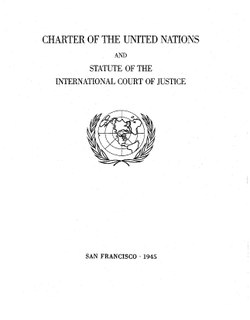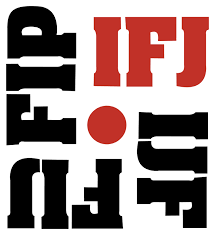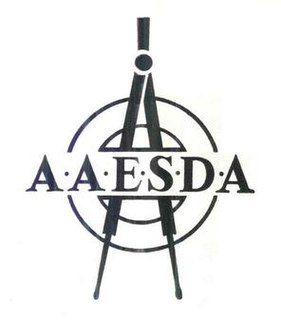Objectives
CCISUA's main objectives are as follows:
1. To promote the common interest of international civil servants of all categories whose staff unions/associations are members of CCISUA.
2. To provide a means for staff representative bodies with common concerns to consult with one another both formally and informally with a view to reaching consensus on issues affecting conditions of service and staff welfare.
3. To permit those staff unions, associations, and other staff representative bodies of the system to address advisory and decision-making bodies with a united voice and in particular to participate actively in the work of ICSC, HR Network, HLCM, CEB, the Pension Board, and the Fifth Committee of the General Assembly.
4. To assist each other in finding solutions to common problems and in monitoring the implementation of decisions affecting the staff both at Headquarters duty stations and in the field.
5. To cooperate with other staff groups with a view to formally arriving at common positions on matters affecting staff welfare.
6. To adhere to the spirit of solidarity and support for each member whenever needed.
Issues for UN staff
UN staff face many of the same issues as workers in national economies, and CCISUA affiliates represent both blue-collar staff - such as security guards - as well as white-collar UN civil servants. CCISUA affiliates do not represent UN Peacekeepers, who are made up of military and police personal contributed by member states.
There are a number of industrial relations issues that are peculiar to working within the UN system. The most important of these is perhaps the fact that UN staff are not protected by labour legislation, which means that all conditions need to be negotiated directly with employer representatives.
Also of great concern are the dangers to staff working in areas of conflict and other non-secure locations. Many UN staff are killed in the line of duty.
Another area of concern is the prevalence of short-term contracts in the UN system, the lack of job security and long-term career development.
An intergovernmental organization (IGO) is an organization composed primarily of sovereign states, or of other organizations through formal treaties for handling/serving common interests and governed by international laws. IGOs are established by a treaty that acts as a charter creating the group. Treaties are formed when lawful representatives (governments) of several states go through a ratification process, providing the IGO with an international legal personality. Intergovernmental organizations are an important aspect of public international law.

The International Labour Organization (ILO) is a United Nations agency whose mandate is to advance social and economic justice through setting international labour standards. Founded in October 1919 under the League of Nations, it is the first and oldest specialised agency of the UN. The ILO has 187 member states: 186 out of 193 UN member states plus the Cook Islands. It is headquartered in Geneva, Switzerland, with around 40 field offices around the world, and employs some 3,381 staff across 107 nations, of whom 1,698 work in technical cooperation programmes and projects.

The United Nations Economic and Social Council is one of the six principal organs of the United Nations, responsible for coordinating the economic and social fields of the organization, specifically in regards to the fifteen specialised agencies, the eight functional commissions and the five regional commissions under its jurisdiction.

The Charter of the United Nations is the foundational treaty of the United Nations, an intergovernmental organization. It establishes the purposes, governing structure, and overall framework of the UN system, including its six principal organs: the Secretariat, the General Assembly, the Security Council, the Economic and Social Council, the International Court of Justice, and the Trusteeship Council.

The Common Foreign and Security Policy (CFSP) is the organised, agreed foreign policy of the European Union (EU) for mainly security and defence diplomacy and actions. CFSP deals only with a specific part of the EU's external relations, which domains include mainly Trade and Commercial Policy and other areas such as funding to third countries, etc. Decisions require unanimity among member states in the Council of the European Union, but once agreed, certain aspects can be further decided by qualified majority voting. Foreign policy is chaired and represented by the EU's High Representative, currently Josep Borrell.

The United Nations System consists of the United Nations' six principal organs, the Specialized Agencies and related organizations. The UN System includes subsidiary bodies such as the separately administered funds and programmes, research and training institutes, and other subsidiary entities. Some of these organizations predate the founding of the United Nations in 1945 and were inherited after the dissolution of the League of Nations.

The Scottish Trades Union Congress (STUC) is the national trade union centre in Scotland. With 40 affiliated unions as of 2020, the STUC represents over 540,000 trade unionists.

The Public Service Association or PSA is the largest democratic union in New Zealand representing the interests of members working in government departments, local government, the health sector, crown agencies, state-owned enterprises and community and government-funded agencies. Membership was approximately 70,000 as of November 2018. As of June 2021 there are 80,000 members.
In British politics, an affiliated trade union is one that is linked to the Labour Party. The party was created by the trade unions and socialist societies in 1900 as the Labour Representation Committee and the unions have retained close institutional links with it.

The International Federation of Journalists (IFJ) is a global union federation of journalists' trade unions—the largest in the world. It represents more than 600 000 media workers from 187 organisations in 146 countries.

The European Trade Union Confederation (ETUC) is the major trade union organisation representing workers at the European level. European integration has reinforced the EU's role in economic, employment and social policy throughout the 27 member states. The ETUC is a European social partner, which means that the European Commission consults it when developing social and economic policies. It also negotiates autonomous agreements and work programmes with European employers. And it coordinates the national and sectoral policies of its affiliates on social and economic matters, particularly in the framework of the EU institutional processes, including European economic governance and the EU Semester.

The World Federation of the Deaf (WFD) is an international non-governmental organization that acts as a peak body for national associations of Deaf people, with a focus on Deaf people who use sign language and their family and friends. WFD aims to promote the Human Rights of Deaf people worldwide, by working closely with the United Nations and various UN agencies such as the International Labour Organization (ILO) and the World Health Organization (WHO). WFD is also a member of the International Disability Alliance (IDA).
The Federation of International Civil Servants’ Associations (FICSA) was founded in Paris in 1952. Its earliest members were the Staff Associations of the United Nations, New York; the European Office of the United Nations, Geneva; UNESCO; ICAO; WHO; WMO and the Staff Union of the ILO. FICSA has since expanded to a federated group of 29 staff associations/unions belonging to the United Nations common system with full membership status; 18 staff associations/unions outside the UN common system as associate members; 15 staff associations/unions as consultative members and 22 Federations of United Nations Staff Associations (FUNSA) as observers. While its members are diverse, they all have many workplace issues in common and can benefit from the exchanges of information and ideas, updates on employment trends and best practices, a wide range of workshops and training and direct advice and support provided by the Federation at the local as well as global level.

The General Federation of Trade Unions (GFTU) is a national trade union centre in the United Kingdom. It has 35 affiliates with a membership of just over 214,000 and describes itself as the "federation for specialist unions".

The European Metalworkers' Federation (EMF), founded in 1971, is a federation of 68 metalworkers' unions from 31 countries, representing a combined total of 6.5 million affiliates. It is based in Brussels, Belgium, the general secretary is Ulrich Eckelman and Bart Samyn is the Deputy General Secretary. The organisation was dissolved on 15 May 2012, to become a part - together with EMCEF and ETUF-TCL - of the newly created organisation industriAll European Trade Union on 16 May 2012

The European Union (EU) has had permanent observer status at the United Nations (UN) since 1974, and has had enhanced participation rights since 2011. The EU itself does not have voting rights but it is represented alongside its 27 members, one of which, France, is a permanent member of the Security Council.

The Irish Congress of Trade Unions, formed in 1959 by the merger of the Irish Trades Union Congress and the Congress of Irish Unions, is a national trade union centre, the umbrella organisation to which trade unions in both the Republic of Ireland and Northern Ireland affiliate.

The Trades Union Congress (TUC) is a national trade union centre, a federation of trade unions in England and Wales, representing the majority of trade unions. There are 48 affiliated unions, with a total of about 5.5 million members. The current General Secretary is Frances O'Grady.

The Association of Draughting Supervisory and Technical Employees (ADSTE), originally known as the Association of Architects, Engineers, Surveyors and Draughtsmen of Australia (AAESDA), was an Australian trade union which existed between 1915 and 1991. It represented white collar and technical-grade employees in both the private sector and the public service.
The Federation of South African Labour Unions (FEDSAL) was a national trade union federation in South Africa.















